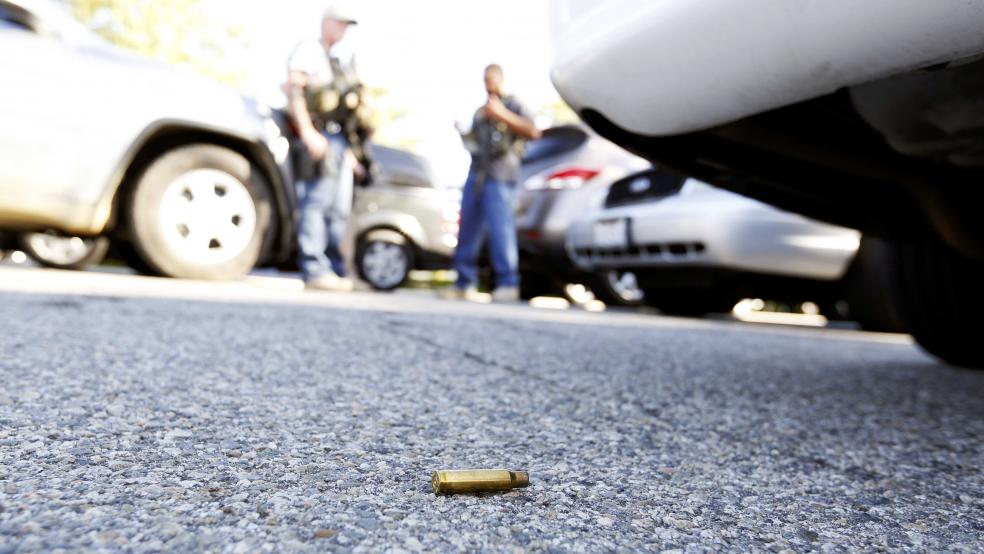Roughly a week after the terror attack in San Bernardino, Calif., that killed 14 people, Washington is preparing a slew of proposals aimed at reducing the odds of a similar incident happening again.
The attack, carried out by a husband and wife, has rattled the White House and Capitol Hill. It appears the couple was loyal to the Islamic State and had been radicalized “for quite some time,” David Bowdich, the FBI assistant director in charge, said during a press conference on Monday.
Related: With an Eye on ISIS, Congress Moves to Tighten U.S. Travel Rules
President Obama tried to soothe the nation’s nerves about the threat posed by jihadist groups in a Sunday night primetime address from the Oval Office. It will be some time before polls reveal what if any impact the president’s speech had on the country’s mood; in the meantime, Washington is proceeding with potential changes to address the problem.
Here are some of the steps Congress and the White House are considering:
Visa waiver program revamp. The House is slated to vote Tuesday on a bill that would tighten the visa waiver program, which allows citizens from 38 countries to travel to the U.S. without a visa for 90 days. Democrats and Republicans alike pushed for changes to the program in the wake of the ISIS attack in Paris that left 130 people dead.
The changes are aimed at making it harder for individuals from certain countries to enter the U.S. if they have traveled to Iraq, Syria, Iran or Sudan since 2011, and allow Washington to halt a nation’s participation in the program if they don’t share information about possible national security threats with the U.S.
Related: Obama Tries to Calm Fears in Major Address to Nation
The GOP has also called for a soup-to-nuts review of the U.S. visa system, especially K-1 visa, which allows foreigners to come to America to marry a U.S. citizen. One suspect in San Bernardino entered the country that way last year.
New terror warning system. Later this week the federal government will unveil a new terror warning system. “I believe that in this environment, we need to get beyond that and go to a new system that has an intermediate level to it and I’ll be announcing soon, hopefully, what our new system is, that I think, reflects the current environment and the current realities,” Homeland Security Secretary Jeh Johnson said Monday at an event hosted by Defense One.
The existing National Terrorism Advisory System is supposed to notify the public about an “imminent” or “elevated” threat to the country, but since the bar for triggering such an alert is so high, it’s never actually been used.
Related: Is Congress Stumbling into Another Budget Crisis?
While it’s unclear what the new system will look like or what its litmus test for use might be, you can count on the president not reviving the much-maligned color-coded system the administration scrapped in 2011.
ISIS czar. In a sign that members of Obama’s own party are worried he doesn’t have the right strategy for defeating ISIS, Senate Minority Leader Harry Reid (NV) said Monday he would introduce legislation that would, among other things, create an “ISIS czar” to oversee the fight against the terror group.
"We did it with Ebola, we certainly can do it with the scourge that is facing this country, ISIS," he said.
The measure, likely to be introduced Tuesday, also includes language to close what Democrats call “terrorist gun loophole” that allows people on the government’s no-fly list to purchase a gun, something Obama mentioned in his Sunday address.
‘No-fly’ gun limit. While closing the ‘no-fly’ loophole is a part of Reid’s plan, House Democrats have made it the focal point of their response to the recent terror attacks.
Rep. Mike Thompson (D-CA), who chairs the House Gun Violence Prevention Task Force, filed a discharge petition Monday to force a floor vote on a bill eliminating the gap.
A discharge petition requires 218 signatures. Given the GOP’s rock-solid relationship with the National Rifle Association, it’s unlikely the petition will garner enough support, giving Democrats what they see as an opportunity to counter Republicans on national security.
However, there is new precedent for using a discharge petition. A bipartisan group of lawmakers successfully used one earlier this year to get a vote on legislation reviving the U.S. Export-Import Bank; the reauthorization was attached to the $305 billion transportation bill Obama signed into law late last week.
Prior to that, the last successful discharge petition was in 2002.





